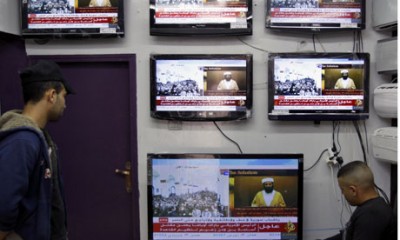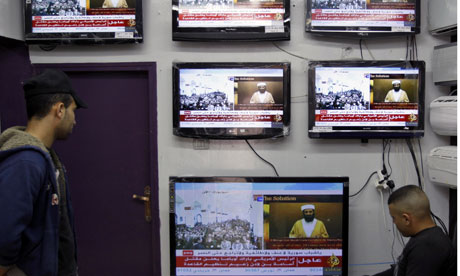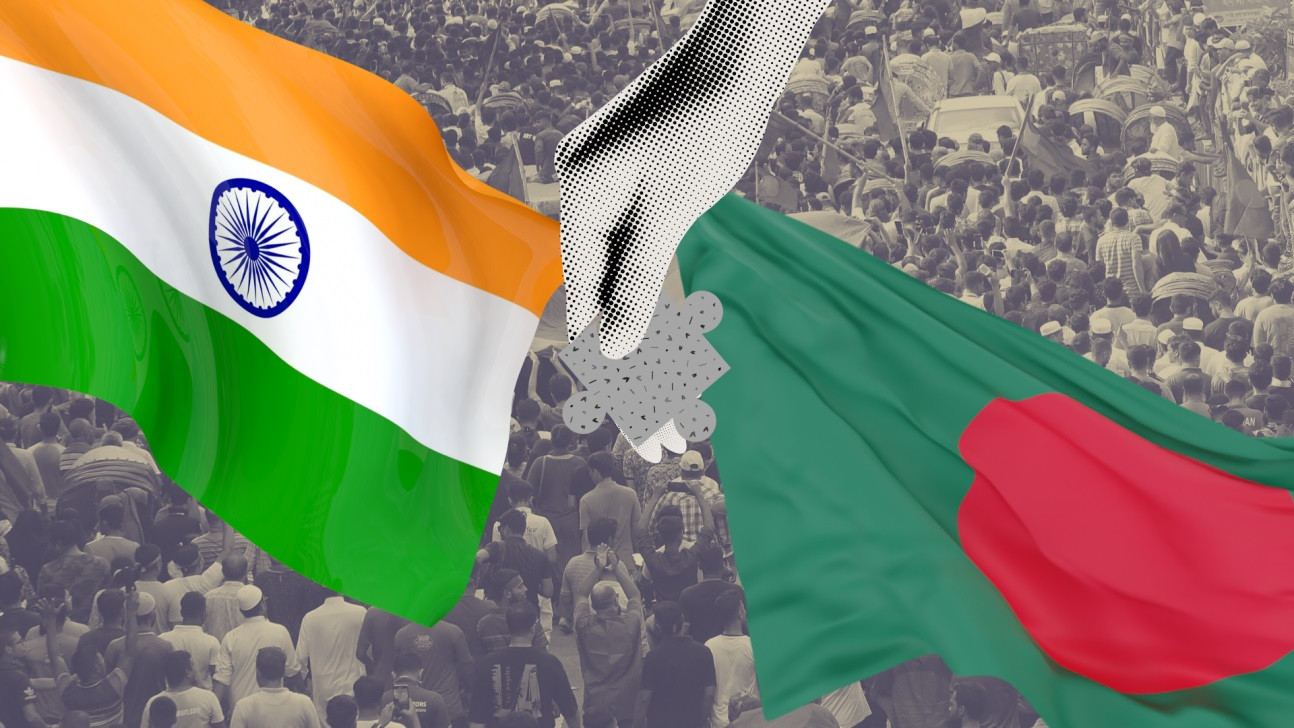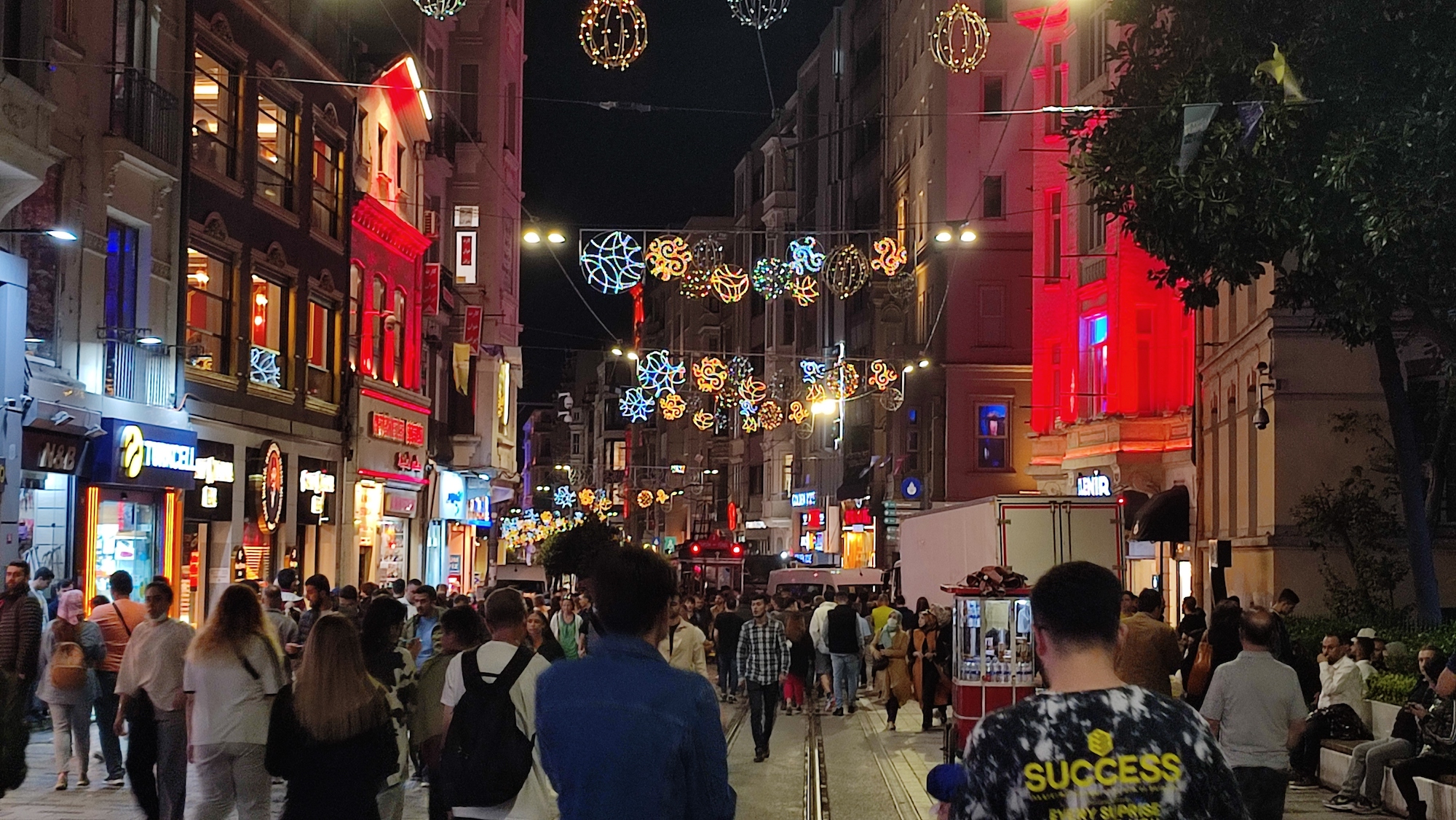From Cairo to Baghdad, the Arab world’s reaction to news of the death of Osama bin Laden was a mixture of surprise and suspicion
The Arab world reacted with surprise and suspicion to the death of Osama bin Laden – whom some doubted had existed and many more had claimed was never the mastermind of the jihadi violence attributed to him.
Reaction in Cairo was initially muted, with local media outlets and early morning commuters reluctant to talk about the significance of the news before the body of the terrorist leader was displayed.
“I hope it’s true, but even it it is, does it really mean that al-Qaida is finished?” said bank worker Ayman Qhadari. “There will be a million more men like him. There probably already are.”

The global jihad network built by Bin Laden has significant links in Egypt. It was the birthplace of al Qaida’s second-in-command, Ayman al-Zawahiri, who is considered a leading candidate to assume command of the organisation.
Many intelligence officials in the Middle East believe Zawahiri is already acting as the group’s military commander, an assertion backed by a 2009 US military assessment which concluded bin Laden had taken on more of a spiritual role.
“You don’t see T-shirts of Bin Laden in Egypt anymore,” said Ragheb al-Masri, as she made her way to work in central Cairo this morning. “That was four years ago. But this group called al-Qaida now has many faces.”
In Iraq, which suffered devastating violence at the hands of Sunni groups initially inspired by Bin Laden, some intelligence officials believe that the killing in Pakistan will have a significant effect in Iraq, but others were less optimistic.
“Al-Qaida is not one person anymore,” said Major General Hussein Kamal from the intelligence division of Iraq’s interior ministry. “I don’t expect that the killing of Bin Laden will finish al-Qaida here or in other countries. It will affect their morale, for sure. But it won’t end their organisation.”
On Baghdad’s front lines, soldiers said the deaths of two senior local al-Qaida leaders had done little to quell the insurgency. Abu Musab al-Zarqawi was killed by a US air strike in 2006, and Abu Omar al-Baghdadi was tracked down and killed in April last year but neither death brought an end to the killing.
“Things are still fragile in Iraq. The danger of al-Qaida will not stop after the killing of their leader,” said Sergeant Ala’a Salem at a checkpoint in the west of the city. “We should know, we can look to our experiences after the killing of Zarqawi and al-Baghdadi. We are also worried from revenge attacks. We have had orders today to increase our security measures.”
Nearby, shopkeeper Samir Hadi, said. “Killing him makes al-Qaida in Iraq weak. But they have their own leadership and organisations these days. There are many regional and external agendas to destabilise things here. This won’t end the fight for Iraq.”
In the West Bank, the western backed Palestinian Authority welcomed Bin Laden’s death. “Getting rid of Bin Laden is good for the cause of peace worldwide but what counts is to overcome the discourse and the methods – the violent methods – that were created and encouraged by Bin Laden and others in the world,” PA spokesman Ghassan Khatib said.
In Ramallah, the PA’s view was shared by Ahmed Saleh, a 58-year-old retired Palestinian. “The world is better without Bin Laden. It has removed a pillar of evil from the world,” he said. “His heinous actions were exploited to allow hostile policies towards the Arabs and Muslims.”
But Umm Mohammed, a veiled woman, said she hoped news of Bin Laden’s death was a lie. “God willing, he will continue to conquer the west,” she said.
There was no immediate reaction from Hamas, which governs the Gaza strip but now faces a challenge from alQaida-inspired groups that consider it too moderate.
Abdel-Qader Abu Shaaban, a 53-year-old Palestinian from Gaza, described Bin Laden’s killing as “a very criminal act”.
“This is not a victory. If they assassinated bin Laden, there will be others stronger than him: politicians and military people,” he said.
Across the other side of the Arabian peninsula in Yemen, which is battling an al-Qaida-inspired insurgency of its own, a government official hailed the development as “extremely important”.
“We welcome the news, it is a truly historic moment,” he said. “Millions of people will sleep in peace tonight.”
(Source: Guardian)









